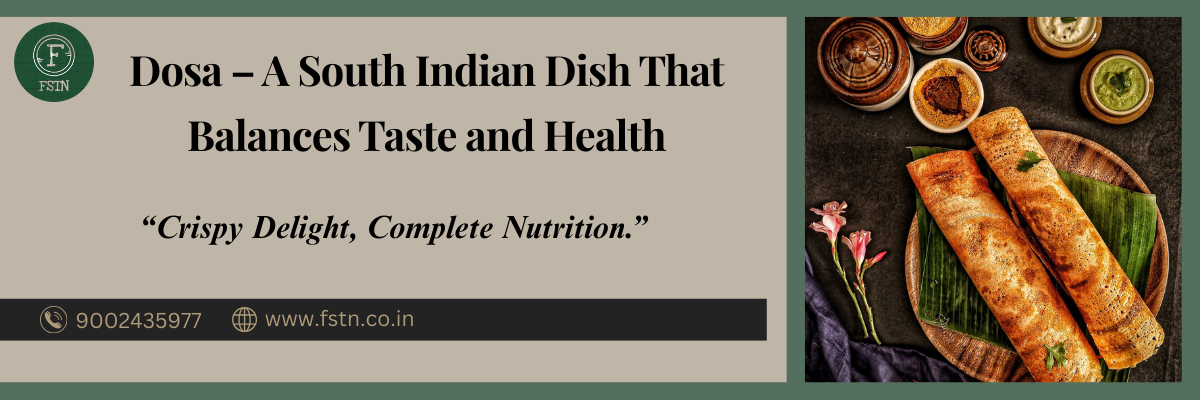Dosa, the crispy, golden pancake loved across India, is a traditional South Indian breakfast that beautifully blends health with taste. Made from a fermented mix of rice and urad dal (black gram), dosa is more than just comfort food—it’s a smart, wholesome choice for everyday eating.
Health Benefits of Dosa :
1. Nutrient-Rich Fuel: Balanced mix of complex carbs and plant-based proteins, supporting energy and muscle repair.
2. Great for Gut Health: Natural fermentation promotes healthy gut bacteria, aiding digestion and nutrient absorption.
3. Light & Easy to Digest: Gentle on the stomach, perfect for all age groups.
4. Gluten-Free Goodness: Naturally safe for gluten-sensitive individuals such Coeliac Disease. It is very good for IBS, IBD too.
5. Low in Fat: When made with minimal oil, it’s heart-friendly.
6. Friendly for Diabetics (in moderation): Pairing with high-fiber sides helps stabilize blood sugar.
7. Boosts Mineral Absorption: Fermentation improves bioavailability of iron, calcium, and B-complex vitamins.
The Power of Sambar & Chutney :
Sambar: This tangy, lentil-based vegetable stew is a nutrient powerhouse. Lentils provide plant protein, while vegetables offer fiber, antioxidants, and essential vitamins. Tamarind adds antioxidants and supports digestion. The spices—like turmeric, cumin, and mustard seeds—have anti-inflammatory and immunity-boosting properties.
Chutney: Usually made from coconut, coriander, mint, or tomatoes, chutneys bring healthy fats, fiber, and micronutrients. Coconut chutney offers good fats that support brain and heart health. Mint and coriander chutneys have detoxifying and digestive benefits. Tomato chutney provides vitamin C and lycopene, known for their antioxidant effects.
When paired with dosa, sambar and chutney make it a complete meal—rich in carbs, protein, healthy fats, fiber, and essential minerals.
Dosa & Digestion :
The fermented batter works like a gentle probiotic, aids digestion and prevents bloating. Combined with fiber-rich chutney and sambar, it supports gut health, regulates bowel movements, and enhances nutrient absorption.
Is Dosa Good or Bad for Health?
Good when:
- Cooked with minimal oil.
- Eaten in moderation.
- Paired with healthy sides like sambar and chutney.
Caution when:
- Allergy in Probiotics
- Indigestion issues with Fermented Products
- Overloaded with cheese, butter or oil.
- Made with overly processed ingredients.
Conclusion :
Dosa is more than a dish—it’s a tradition that nourishes the body and comforts the soul. Paired with sambar and chutney, it becomes a wholesome, balanced, and digestion-friendly meal. So go ahead—enjoy that dosa! Your taste buds and tummy will thank you.



